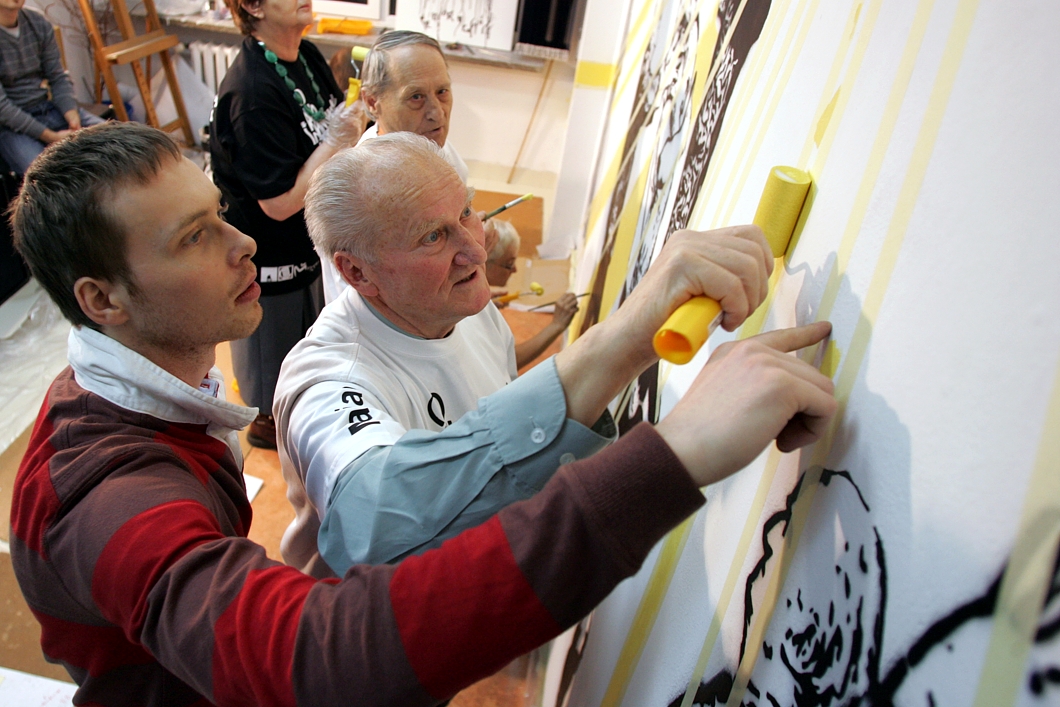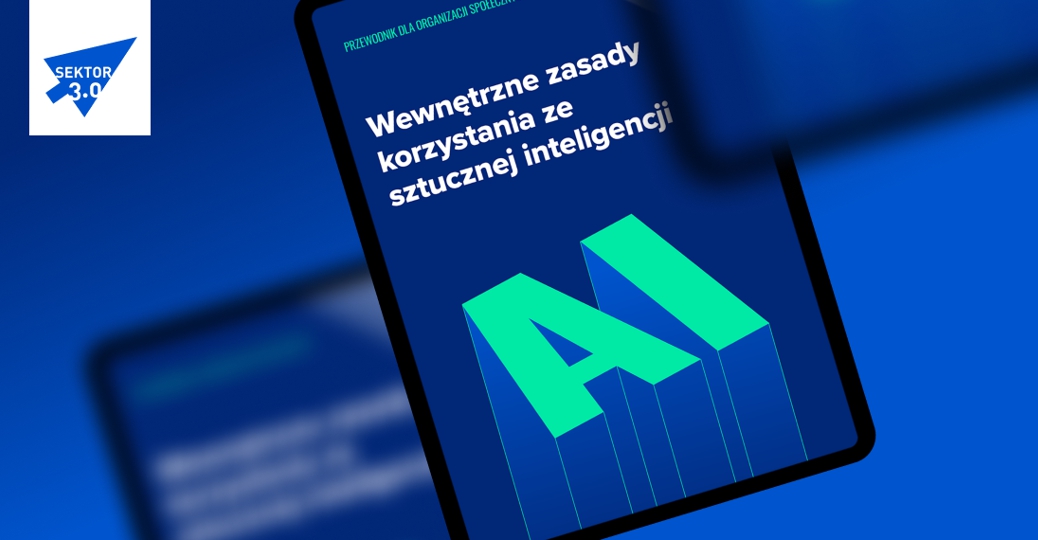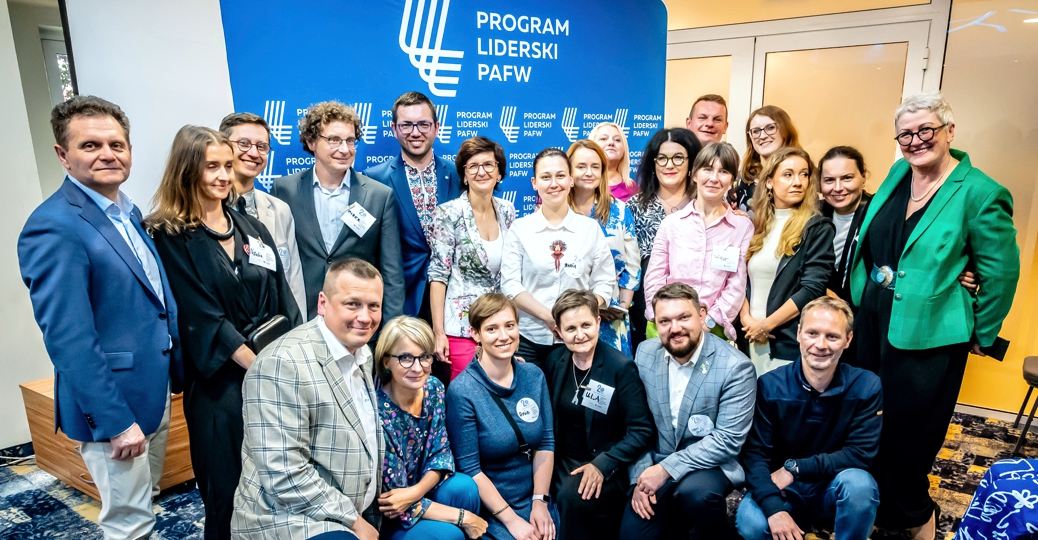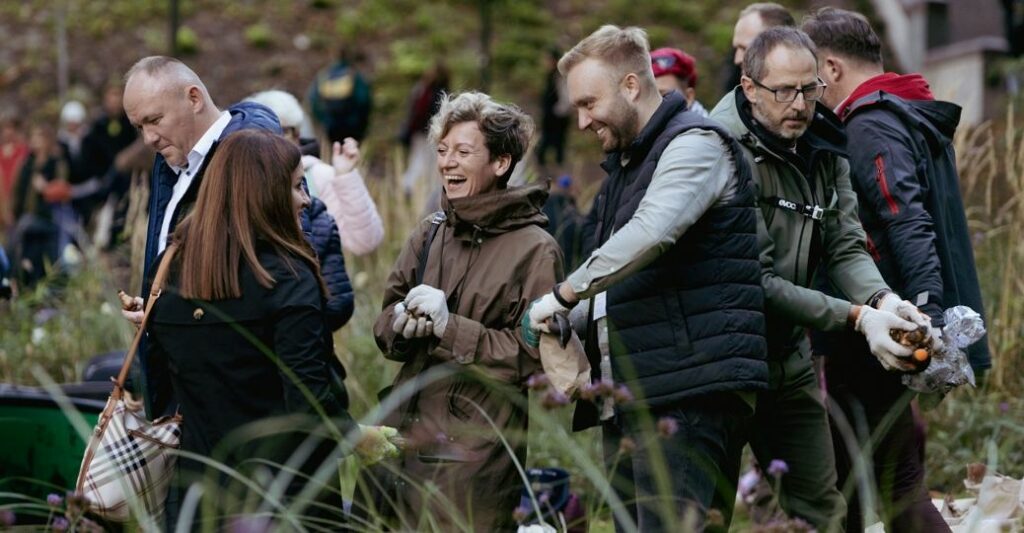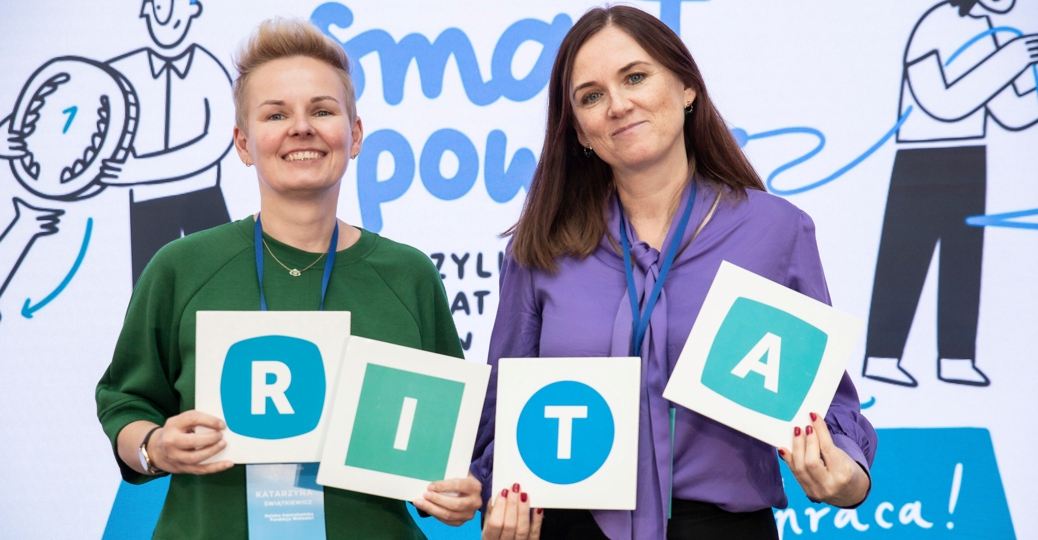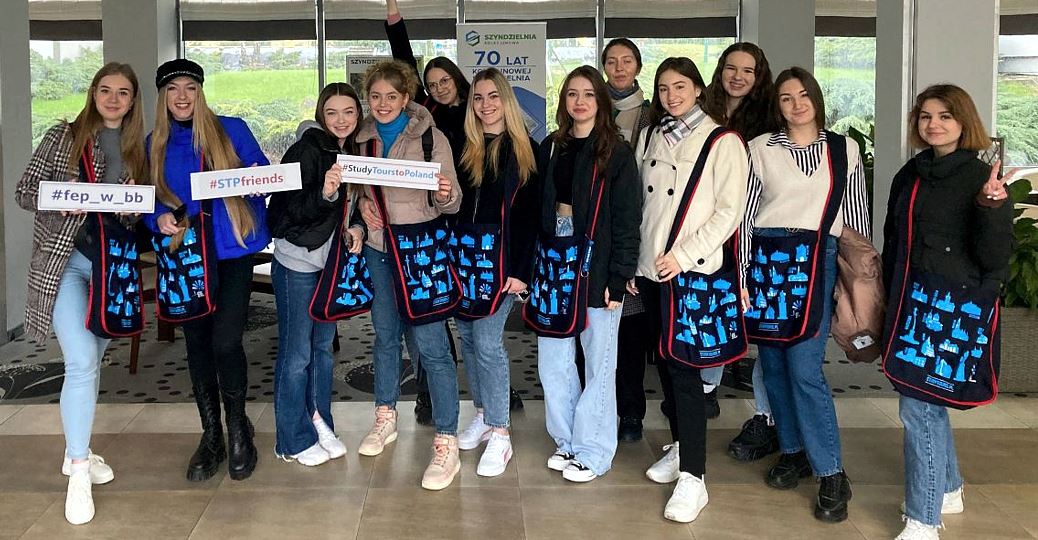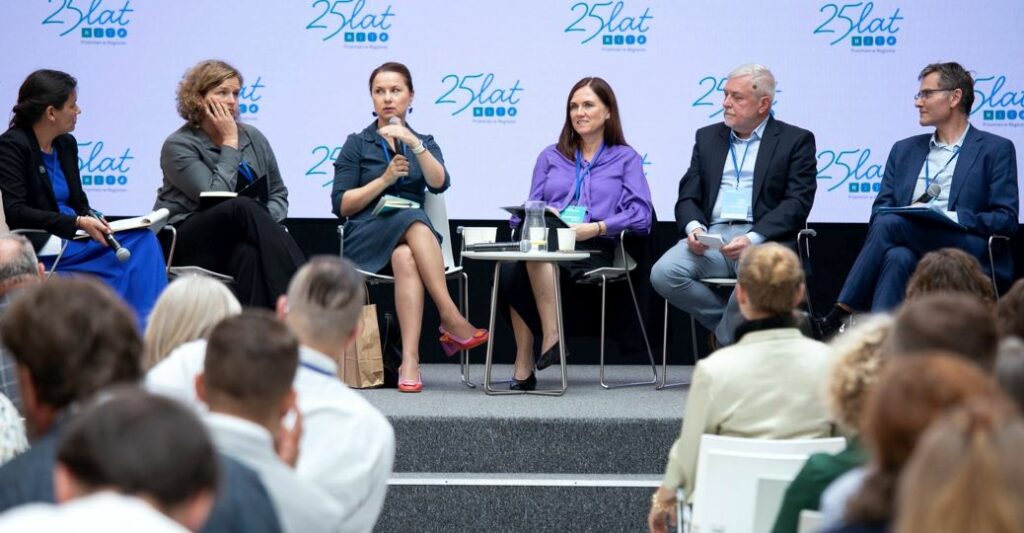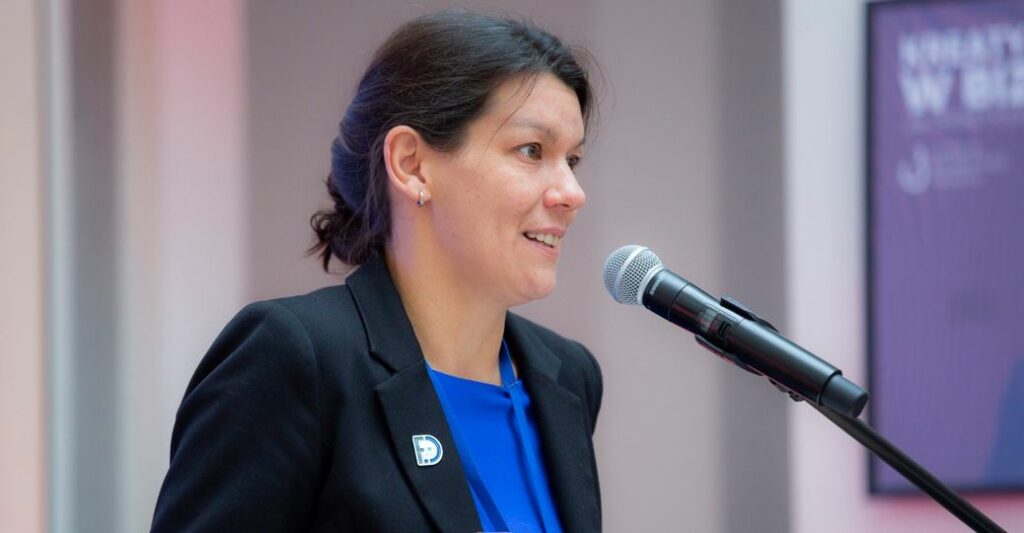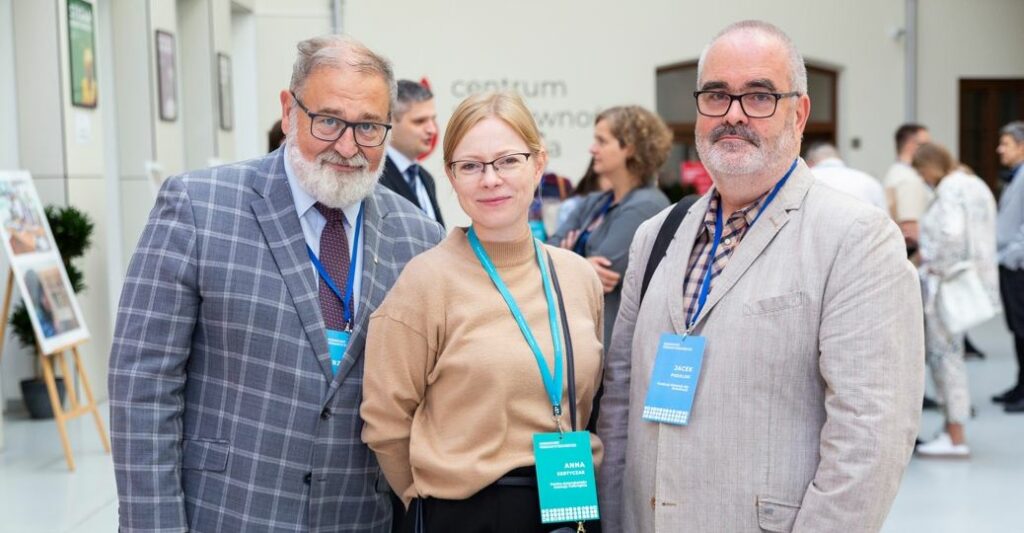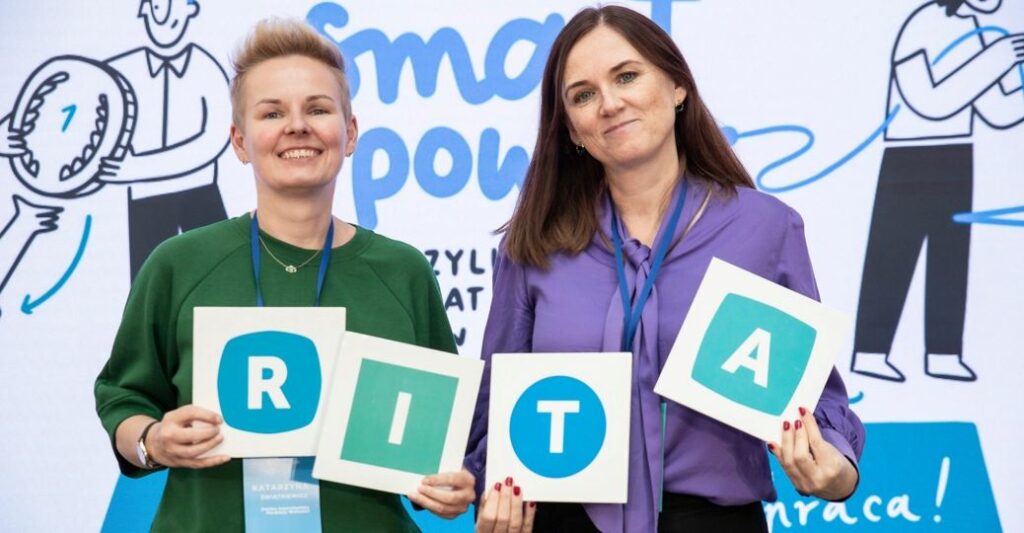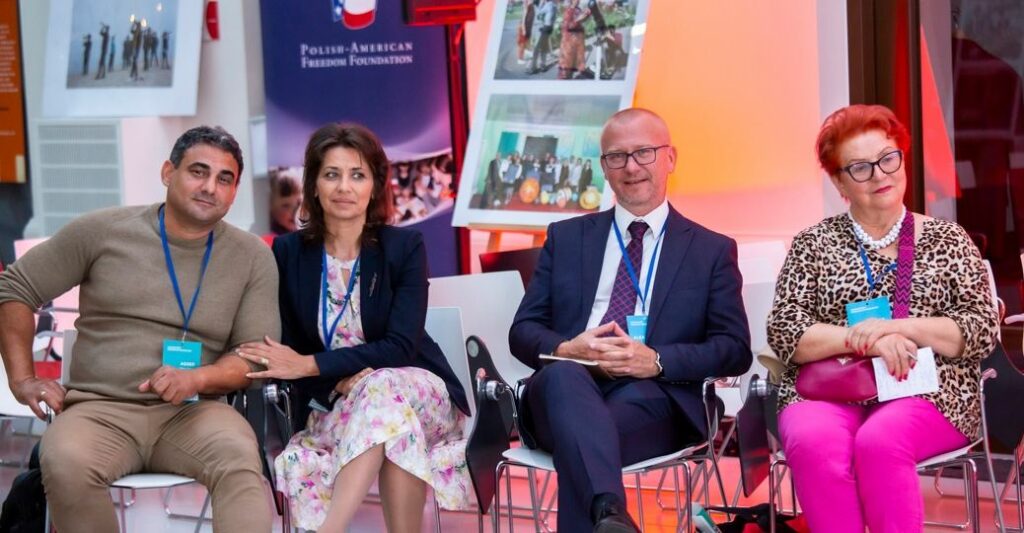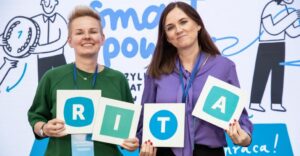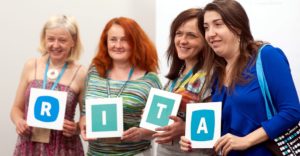How to build crisis-resistant societies, strengthen local leaders, and inspire young people to take action? The conference marking the 25th anniversary of the “Region in Transition” (RITA) program showed that the answers to these questions arise from dialogue, cooperation, and bold grassroots action.
The Targowa Creativity Center in Warsaw hosted the anniversary conference of the “Region in Transition” program – celebrating 25 years of supporting democratic and civic transformation in Eastern Europe, the South Caucasus, and Central Asia. The event, combined with a two-day meeting of “Ambassadors of Transition in the Region,” brought together project coordinators, experts, and community leaders who have been contributing to change in the region for a quarter of a century. It was organized by the Education for Democracy Foundation (FED).
The meeting was hosted by Martyna Bogaczyk, President of the FED Management Board.
The event began with a speech by Jerzy Koźmiński, President of the Polish-American Freedom Foundation, who emphasized that the “Region in Transition” (RITA) program has been supporting the development of civil societies in Eastern Europe, the South Caucasus, and Central Asia for 25 years. “From the very beginning, this program has occupied an extremely important place on the activity map of our Foundation, perfectly fulfilling a significant part of its mission,” said Jerzy Koźmiński. The strength of the program lies in the organizations that, in a spirit of partnership, transfer Poland’s experience of transformation and membership in the European Union to the East. “This is not about exporting Polish solutions, but about joint learning and exchange of experiences. The program has enabled the implementation of over 1,100 projects that have strengthened local leaders, social organizations, civic education, and human rights activities,” said the PAFF President. He also pointed out that for 25 years, “RITA” has not only supported specific initiatives but also built lasting relationships between people and institutions. This has created a network of cooperation that has survived political changes and crises. He also noted that the effects of the program are visible in local communities – in greater civic activity, better understanding of the mechanisms of democracy, and the strengthening of non-governmental organizations, which often operate in difficult conditions. Ukraine occupied a special place in the PAFF President’s speech. Jerzy Koźmiński noted that in the face of war, support for Ukrainian organizations and communities has taken on a new dimension – it is not only aid, but also an expression of solidarity and faith in the future of democratic Ukraine.
Next, Dr. Agnieszka Bieńczyk-Missala gave a lecture on the legacy of transformation in the context of contemporary challenges. “The example of Poland and Solidarity shows that the transformation was a great success,” said Dr. Agnieszka Bieńczyk-Missala. She identified strengthening security, combating disinformation, and demographic problems as key challenges today. She also pointed to the need to reflect on the role of civil society in times of crisis.
During the panel discussion “Soft power or smart power – lessons from 25 years of cooperation in the region,” which was attended by such experts as Dr. Paweł Bagiński, Ihor Dobko, Justyna Janiszewska, Dr. Agnieszka Mazur, and Katarzyna Zaremba, the participants discussed, among other things, the evolution of development cooperation, the activities and role of Polish non-governmental organizations in the region, and the challenges facing local communities in the countries participating in the “RITA” program.
Dr. Agnieszka Mazur, PAFF Program Director, emphasized in her speech during the panel that the strength of Polish non-governmental organizations operating in the Region lies in their professionalism, knowledge and experience of working in specific countries, understanding of the context and realities, as well as partnership relations with partners in the countries of the Region.
The participants also took part in thematic discussions on issues such as rebuilding social trust, acting under Authoritarian rule, activating the young people, local initiatives that change reality, and social resilience to disinformation. These sessions allowed for the exchange of experiences and reflection on strategies for action. During the two-day meeting, participants also took part in a dialogue session on “The change brought about by our actions. What impact do we have?” and in competence workshops.
The conference was not only a summary of the achievements of the “RITA” program, but also an opportunity to thank those who contributed to its creation: Jacek Michałowski, former PAFF Program Director, and former Presidents of the Education for Democracy Foundation: Justyna Janiszewska, Krzysztof Stanowski, and Jacek Podolski.









